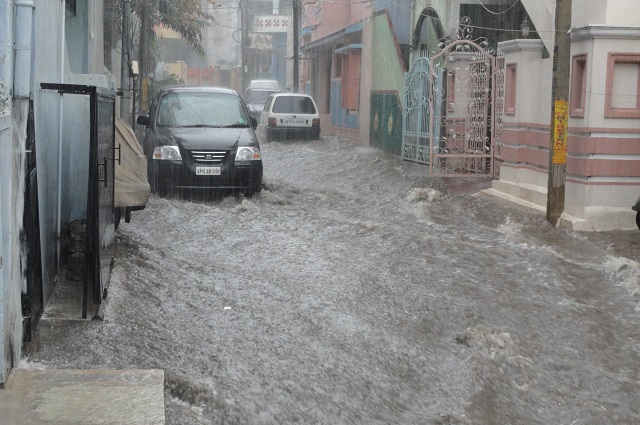News Story
(Below is a backup copy of the original article with as much credit to the publisher as well as the author that we can provide. By no means do we mean to violate any copyright laws. This page is appearing because someone indicated that the original story was unavailable.)
When it comes to holidays, it seems no one really cares about climate change
The road to hell is paved with good intentions. Or so we are told. This is one of the great adages; an encapsulation of humanity’s capacity for attempting to do the right thing while driving itself to its own disadvantage. You might hear echoes in the present. Perhaps in the way social media has reshaped our world, yet not wholly for the better; or in the fear that artificial intelligence won’t, ultimately, make our lives easier – but come to rule them.
Of course, you can also rework the adage more simply. Never mind hell; maybe, in 2023, it is the flight path to Tenerife that is “paved” with good intentions. Or Alicante, Paphos, Athens, Berlin, Miami or Buenos Aires. Take your pick. Wherever your destination, Mr Mephistopheles is your cabin steward today. He’ll be around later with the drinks trolley.
This, if you will allow for the dramatic licence, is a conclusion you might draw from the 2023 Holiday Habits survey. This weighty annual report, published every autumn by the travel association ABTA, is a deep dive into the latest trends in the realm of UK tourism.
In among the most significant headlines – Spain is the most popular destination for British tourists (as it always tends to be); a greater proportion of Britons plan to go away in the spring next year (48 per cent) than in the summer (46 per cent) – is a fascinating section of data on how we are all adapting our travel instincts in an era of climate change.
Or not adapting them, to be exact.
Spain, Mallorca
Despite closer options available, Spain is the most popular destination for British tourists - Westend61/Getty
It is not that we refuse to acknowledge our over-heating world. Indeed, the ABTA report illustrates that we are very aware of the flaming elephant in the smoky room. Asked if they agreed with the statement “Concern about climate change may make me more likely to choose a destination closer to the UK”, 43 per cent of those surveyed answered “yes”.
But while good intentions are one thing – and if you will excuse me a precious moment, here’s that nice Mr Mephistopheles again, with the duty-free perfumes – actions (as the cliché goes) speak louder than words. And when it came to putting this particular worthy intention into action, and choosing a holiday resort nearer home, only 17 per cent did so.
ABTA produced this data via a set of questions posed a year apart – the first put to the survey’s participants in August 2022, asking whether (and how) they planned to travel more environmentally in the coming 12 months; the second, asked in the August of this year, inquiring whether they stuck to their principles when it came to making a booking.
And in each of the five scenarios, the response, for the most part, was “erm, sorry, no”.
Travellers at an airport checkin counter dropping their luggage and getting boarding passes
Many of the survey's participants admitted to failing to stick to their principles when booking holidays - Stone RF/Getty
There was another gulf between thought and deed when it came to the statement “I am conscious about the impact of air travel on the environment when making choices about my holiday”; 47 per cent of respondents said “yes” to this in August 2022. But a mere 12 per cent were able to raise their hand to “I took transport other than flying” 12 months on.
ABTA calls this the “Say-Do Gap”. As in, we say the right things about protecting the planet, but when it comes to doing things that make a difference, we don’t keep our word.
Why? This devil is right there in the details.
Of those questioned for the report, 37 per cent said they were “prepared to pay more for a holiday with a company which has a better environmental and social record”. But when it came to swiping their credit card, only nine per cent followed through. In summary, times are tough, there is a crisis in cost of living as well as climate – and principles cost money.
So are we doomed to fly to hell (or Rhodes) with everything around us, including a sense of personal responsibility, on fire? Perhaps. The “Say-Do Gap” says that we understand our holidays have a carbon price-tag, but that we are – as yet – unwilling to compromise.
Now, if you will forgive me, Mr Mephistopheles is back, preparing the cabin for landing. Apparently, it’s hot where we’re going.

